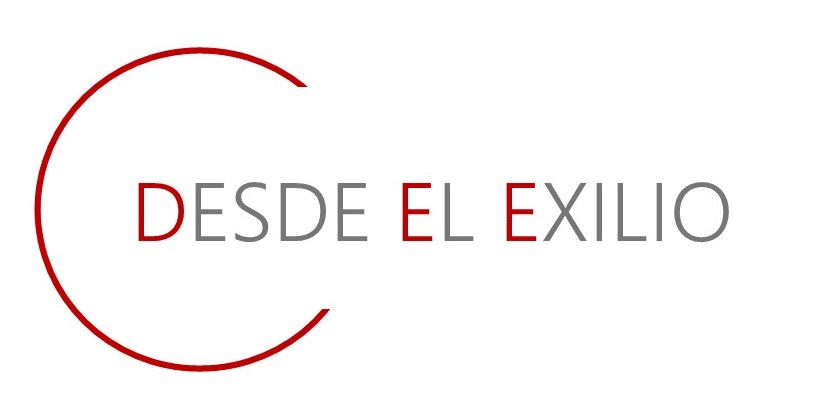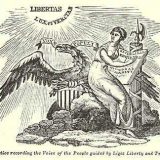Si se lo cuento yo, para nada experto en cuestiones islámicas y encima buen amigo de varios musulmanes, la cosa se quedaría en una «opinión más» de esas vertidas en internet. Si se lo cuenta un periodista y teólogo musulmán, argelino, que se infiltró y convivió en una célula de Al-Qaeda cuatro meses, que escribió un libro sobre las experiencias allí vividas, la cosa deja de ser una «opinión más» y pasa a convertirse en algo más serio. Les hablo de Mohamed Sifaoui, argelino, autor del libro «Mes frères assassins: Comment j’ai infiltré une cellule d’Al-Qaïda» (Paris: Le Cherche-midi Editeur, 2003), quien en una entrevista publicada en The Middle East Quarterly nos dice ese tipo de cosas que muchos no quieren oír. Dado su gran interés, se la traigo completa:
Middle East Quarterly: Did you flee Algeria because of the terrorist attack on Le Soir?
Mohamed Sifaoui: No. Throughout the 1990s, I was determined to stay. I only left in 1999 when I was sentenced to one year in jail for insulting the head of state. I had criticized President Abdelaziz Bouteflika’s reconciliation policy because I considered it unfair to grant amnesty to a terrorist without even judging him. The Algerian government talked about peace without ever recognizing there was a war. The terrorists suddenly got themselves released with the same rights as the victims’ families. Bouteflika’s behavior towards his people was criminal. They wanted to send me to jail at the same time they were releasing criminals.
MEQ: You stayed longer than most. Were people right to leave Algeria?
Sifaoui: The intellectuals and journalists who left Algeria when the murders started in 1992 were right to do so because the risk was real. Survival instinct is natural and legitimate. It would be indecent to judge them because fear is a legitimate human feeling. In this sense, I was the one being unreasonable by risking my life to stay.
MEQ: Why did you stay in Algeria?
Sifaoui: I didn’t want to leave the country under pressure, because of the possibility of another terrorist attack. Nor do I believe that I was especially brave to stay. It is not a question of being brave or weak. The only thing that matters is the message and the values that you want to transmit. As a journalist, I felt that I had to stay. We never obtained press freedom in Algeria, but I wanted to struggle to get a small part of it. We made some progress, but then, Islamism took us backward. By staying, I wanted to show that I would not accept submission to Islamist censorship and its diktat.
MEQ: Are you still worried? After all, two bodyguards are supervising this interview.
Sifaoui: No, I am not worried. I have built sort of a shell around me. I keep calm, and I do not panic. Honestly, I prefer not to think about it; otherwise, I would worry too much.
MEQ: Are you proud today to have risked your life for your ideas?
Sifaoui: Yes, because I am lucky enough to be alive. It is a shame that those who died did not leave for safety. I stayed because I felt that I was able to accomplish this act of resistance. Each person resists in his or her own way; each does what he or she feels able to. Among the members of the World War II resistance, some hid other resisters; some hid Jewish families or helped them escape to Switzerland, and some failed only to denounce them. For me, at this time, my resistance to fundamentalism is based on a determination not to concede any ground to the Islamists but to keep on writing and to defy danger everyday.
MEQ: What was your reaction to Al-Qaeda deputy leader Ayman al-Zawahiri’s appeal on September 20, 2007, «to wipe sons of France and Spain» out of the Maghreb?
Sifaoui: I’ve been expressing the same warnings about Islamist terrorism for years. Zawahiri’s statement doesn’t surprise me. Since the GSPC [Salafist Group for Preaching and Combat] pledged its allegiance to Al-Qaeda in September 2006, Algerian terrorists and Al-Qaeda leaders expressed their objective very clearly: Intensify terrorist attacks against the Algerian regime and its institutions, as well as against lay and democratic people, targeting Western and especially French citizens.
MEQ: Do you believe that Zawahiri was referring to the descendants of former colonists in Algeria by using the expression «sons of?» Or was this the result of too literal a translation of the Arabic?
Sifaoui: No! This has nothing to do with any literal translation! Zawahiri is referring to all French and Spanish citizens by saying «sons of.» Al-Qaeda’s targets are all the French and Spanish citizens in the Maghreb.
MEQ: Less than twenty-four hours after the release of Zawahiri’s message, a terrorist attack in Lakhdaria in northern Algeria, fifty miles southeast of Algiers, wounded two French citizens, one Italian, and six Algerians. Is this attack a sign that the European presence in the Maghreb is in jeopardy?
Sifaoui: I would not be so pessimistic, but such a quick reaction indicates how organized and coordinated Al-Qaeda and the GSPC are. It also shows the Algerian regime’s incapacity to deal with terrorism.
An Islamist and Fascist Nexus?
MEQ: Would you use the term Islamo-fascism to describe this threat?
Sifaoui: I certainly am one of the first Muslims to consider Islamism to be fascism. This is not a subjective decision but rather a serious, academic argument. Fascism and Islamism are comparable in many aspects: Fascism, without evoking all its particularities, bears similarities to trends also present in Islamism. I am, of course, making a reference to their will to exterminate the Jews. On this point, the Islamists may go even further in their doctrine than the Nazis did, considering that the end of the world could only occur when there are no Jews left on earth. In the three monotheist religions, apocalypse, end of the world, and doomsday exist and are liturgical events invested with a high degree of spirituality. Hence, the Islamists interpret the end of the world in a very special way. Whereas it is written nowhere in the Qur’an, exegetes describe the end of the world as the day when even the trees and rocks will be able to talk and tell the Muslims: «Come here, there is a Jew hiding behind me. Come and kill him.» And this would go on, until there would not be any Jew left on earth. This ideology is pure fascism.
MEQ: Are there other similarities?
Sifaoui: The will to exterminate or do harm to homosexuals is another similarity between Nazism and Islamism. The Islamists, also, say that they are the best community in the world, a superior race thanks to their beliefs. They use political means to arrive at this erroneous exegesis. I do not fear to call it fascism. And there are many more similarities between fascism and Islamism.
Islamism vs. Moderate Islam
MEQ: Do you believe it is possible to criticize Islamism without being called a racist?
Sifaoui: Absolutely, I would say that one must criticize Islamism. When I am criticizing Nazism, I am not being anti-German.
MEQ: When did you feel for the first time that you had to criticize Islamism?
Sifaoui: I have always felt that it was a moral duty.
MEQ: Do you believe that moderate Islam exists?
Sifaoui: Of course, it does. If the majority of Muslims were not moderate, Islamists would have destroyed the Western world a long time ago. Despite its technological lead, its nuclear power, and all its armies, the Western world would never be able to face an Islamist world entirely convinced by the terrorist cause. One billion people supporting Al-Qaeda would reduce the rest of the world to ashes. Islam contains violent texts that need not be applicable today. Islam is a religion of moderation. I know because I studied theology for four years.
Perhaps 20 percent of Muslims on the planet must be totally reeducated. We have to fight them politically, ideologically, and also militarily. Western societies do not fight them well; whenever they try to do so, they end up strengthening them.
One proof that moderate Islam exists is the huge number of sympathy messages that I received from Muslim people when my investigative story on Al-Qaeda Salafist networks, J’ai infiltré une cellule islamiste, was broadcast on French television M6.
Iran
MEQ: Given the Islamists’ vision of apocalypse, do you believe that Iranian president Mahmoud Ahmadinejad would fear reprisal should Iran attack Israel? Should Western analysts rely on Iran’s rationality?
Sifaoui: Too many Western analysts look at any adversary through a Western lens. Western analysts believe that Al-Qaeda is as rational as the Basque separatist group ETA [Euskadi Ta Askatasuna] or the Irish Republican Army. My personal history, culture, and investigative journalism work allow me to understand what Westerners cannot see: Iran will attack Israel as soon as it can.
MEQ: Doesn’t Iran take into account the eventuality of its own destruction?
Sifaoui: No, it does not. Martyrdom is exalted in Iran. Iranians view annihilation positively. The Islamists’ main purpose is to create the conditions for the West to believe that chaos is possible. The argument that says that Iran will not attack Israel because of immediate and massive retaliation from Israel and the United States is absolutely wrong. The Islamists would welcome such retaliation in order to cement coalitions among Muslim peoples and to encourage riots in the Arab street. U.S. military action, or even its prospect, coincides with Islamists’ interests. That is the reason why I was against the war in Iraq.
MEQ: Can you explain?
Sifaoui: Between October 2002 and January 2003, I spent four months infiltrating an Al-Qaeda terrorist cell in France. Two months before the launching of the Iraq war, when I was in the midst of the group, one of the Islamists said, «Now we are going to pray for George Bush to attack Iraq.» I was surprised and acted as if I were stupid: «Really? Why do you want America to kill our brothers?» The most clever and elevated in Al-Qaeda’s hierarchy, Amara Saïfi [the GSPC’s emir in London] whispered to me, «All over the world, our brothers are now praying for George Bush to attack Iraq. War between the Muslim world and the Western world is bound to happen. Unfortunately, Muslims are too divided. Far too many of them do not pray regularly and neglect religion and jihad. In order to unify and mobilize all these people, we have to continue what we initiated on 9-11. We attacked America to make her retort everywhere in the Muslim world, in order to create a real war between Muslims and the West, and especially Israel.»
MEQ: That’s incredible.
Sifaoui: Another of the group added, «Once Iraq is at war, many of our brothers will go there to fight jihad. George Bush will have answered our prayers by suppressing our enemy Saddam Hussein and unifying the Muslims in jihad. Then as Westerners do not know how to fight attrition wars, we know that they will inevitably get stuck. We will wait until they leave in order to establish an Islamist state in Iraq. This war will be a pretext to launch terrorist attacks in Europe as well.»
Unfortunately, you can see their theory is valid. They predicted exactly what is happening.





Un saludo a todos los k,como yo creemos en dios de una u otra forma, los invito de una forma a migable a seguir con nuestros ideales respetando a los demas ya k,las gerra cuestan mucho y la paz es gratis,bendiciones a todos.Martin Toscano.
Retroferrán, lo curioso de este asunto es que la gran masa de musumanes no extremistas opta en la mayoría de los casos por callar. Siguen siendo muy pocas los voces que, desde el islam, se enfrentan al islamismo radical. Y eso es lo que convierte el problema en peligroso.
El islamofascismo es una realidad que solo los incautos no quieren ver. Aqui no se trata ni de persecucion ni de fobias: se trata de vigilancia si queremos salvar nuestra forma de vida.
Ayer mismo en Salt (Girona) clausuraron una mezquita clandestina, de las que se estan abrindo por todos lados, en nuestras narices, y bajo el signo del buenismo llegaremos a situaciones lamentables e irreversibles, cuando los musulmanes tengan poder politico para legislar y cambiar nuestras leyes de convivencia.
Escribí en Anclaos sobre el tema de Dinamarca y la celula que pillaron justo antes de que mataran a uno de los dibujantes y, sorprendenetemente, veo que en los medios no se habló mas del asunto.
La situacion es mas peligrosa de lo que parece.
Que razón tienes Luís (y te habla un creyente) y cuanto agradezco testimonios como el del argelino Mohamed Sifaoui. Siempre he definido al islam como una ideología teocrática y por tanto, antirreligiosa. Las teocracias no son cosas de los dioses, sino de quienes les representan. Y éstos en el islam (es decir, sus iglesias) siempre han sido fascistas.
“Las iglesias” son hechos sociológicos, están conformadas por hombres, y por tanto, estos hombres han de estar bajo las leyes que las sociedades se den, nunca ellos son quienes deben de imponerlas y menos en nombre de ningún dios. Sin embargo “las religiones” son hechos filosóficos, y por tanto todo el mundo tiene derecho a tener la creencia que quiera en su concepto del “más allá”; pero no basándose en ella, imponernos dichas creencias (teocracias)a los que vivimos “mas acá”.
Esta división nunca ha existido en el islam y es por ello, que allí donde el islam se instala, siempre están en peligro la democracia, el pensamiento libre y las libertades individuales. Las palabras de Mohamed Sifaoui son testigo de ello, y cada día hay más Mohamed´s Sifaoui´s que están perdiendo el miedo, a denunciar al religiosismo fascista existente en todas jerarquías religiosas del islam.
El islam no es un problema de dioses, sino de sus representantes, totalitarios y fascistas hasta la médula. Es la condición “sine quanum” para ascender en sus jerarquías religiosas. En ellos la razón, el libre pensamiento, la democracia como concepto grecorromano, no existe, está prohibida. Dichas jerarquías, por el sólo hecho de definirse a sí misma como “la boca de los dioses”, al verse “por encima del bien y del mal”, se sienten con el derecho divino a no respetar derecho humano alguno.
Es cierto que todas las religiones nacen teocráticas, pero sólo la religión judeocristiana ha tenido durante tres mil años las influencias del pensamiento lógico científico grecorromano. Pensamiento éste que siempre ha tenido clara la idea de que no hay nada que nos asegure que “en la verdad se está” (como lo aseguran las teocracias), sino que “a la verdad se llega” sólo por los caminos del pensamiento libre. Y como prueba de ello y para conseguir dicho pensamiento libre, los grecorromanos nunca creyeron en un único diós, sino que los democratizaron. Como consecuencia de ello, se institucionalizaron sus democracias y se legalizó el pensamiento libre. La religión judeocristiana es hija de esa herencia. No así el islam. Difícil lo tienen los hombres de pensamiento libre en el islam… y hemos de ayudarles…
…y ayudarnos, pues sociopolíticamente hablando, el peligro lo tenemos entre nosotros mismos. No hemos de olvidar que el anterior (y presente) presidente Zp, su alianza de civilizaciones NO le gusta firmarlas con hombres de pensamiento libre como Mohamed Sifaoui, sino con los más fanáticos, totalitarios y fascistas representantes del islam. ¡Y ha conseguido mayoría absoluta!
Para que luego digan que el fanatismo, el totalitarismo y el fascismo es sólo cosa de las religiones… yo afirmo que también es cosa de las ideologías religiosizadas.
Un cordial saludo Luis y gracias por tu valiente denuncia
Pablo el herrero
Bueno, Crispal, ya sabes que soy de los que confían en ese % de musulmanes que están decididos a modernizar su religión. A «privatizarla». Otra cosa es que sea posible, que puedan.
Nada, nada, esto lo soluciona ZP con su alianza de civilizaciones. 😉
POr otro lado basta con leer el Corán para darse cuenta de que su interpretación literal nos lleva a donde estamos.